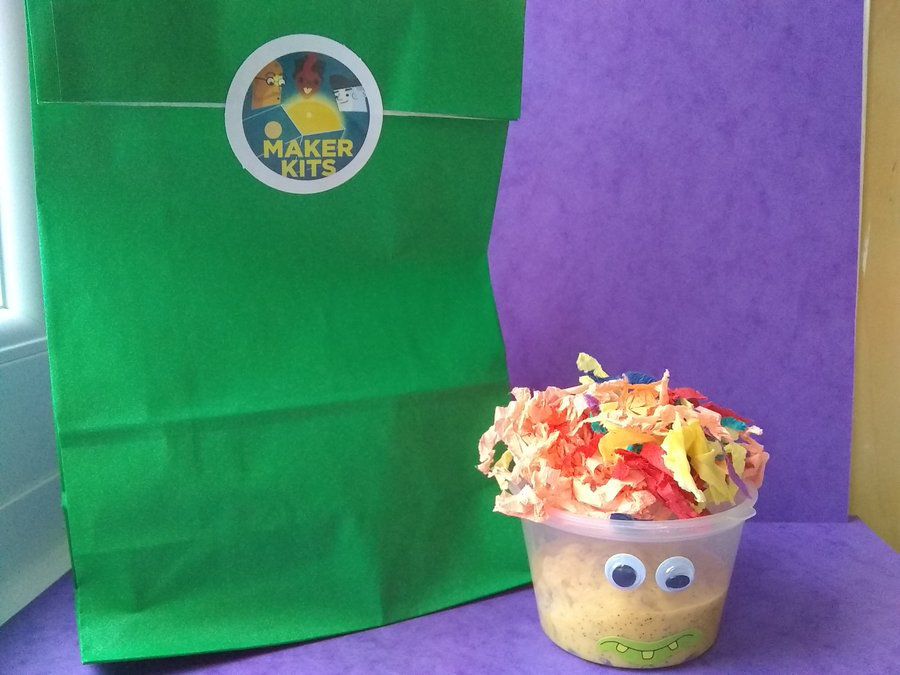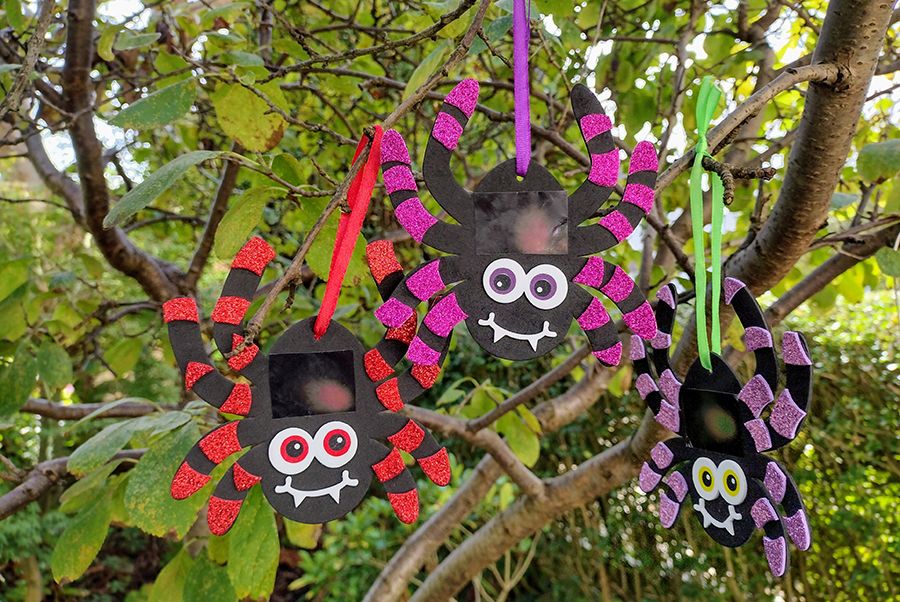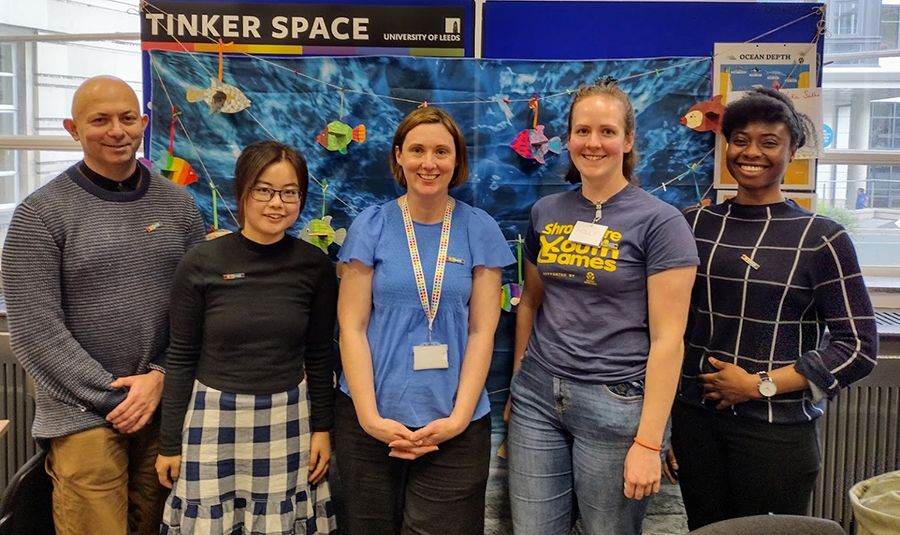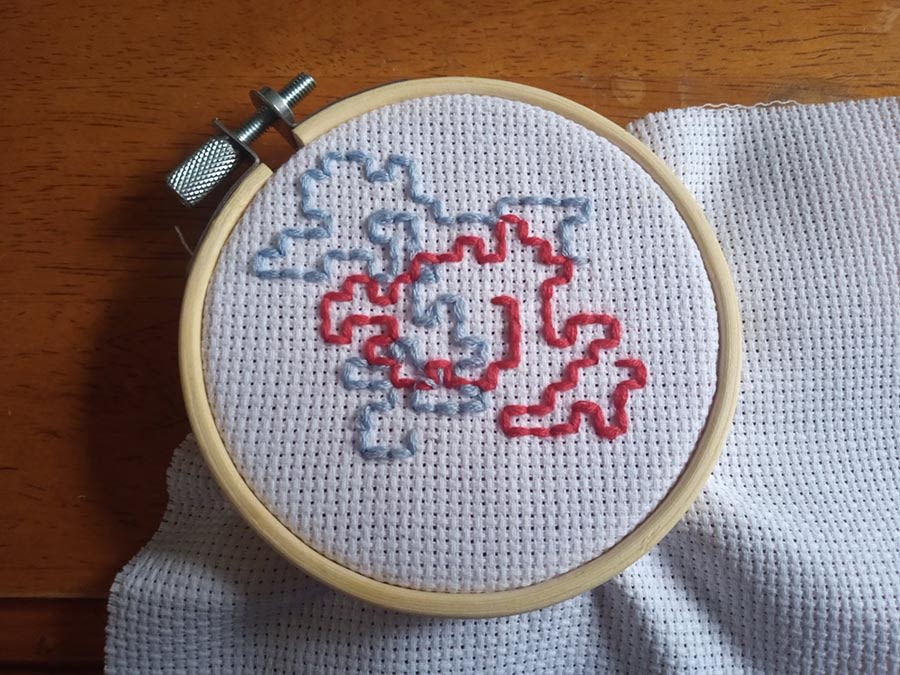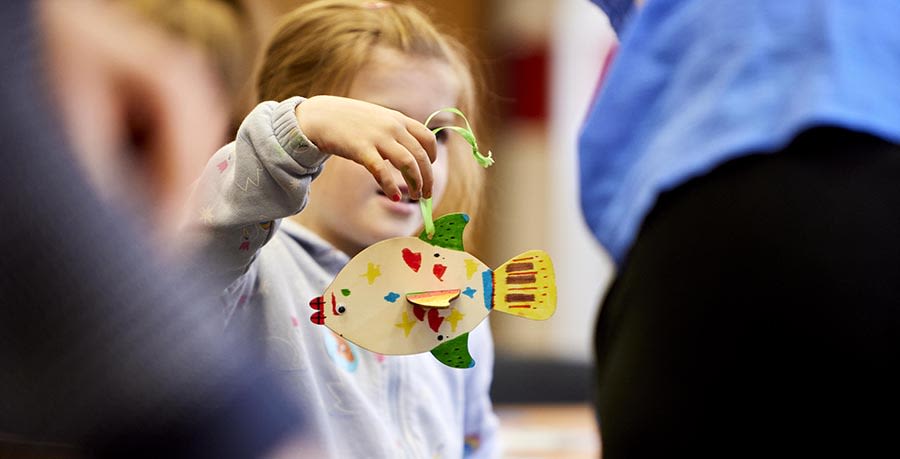Creating curiosity
How imaginative Maker Kits are engaging the public and inspiring young minds
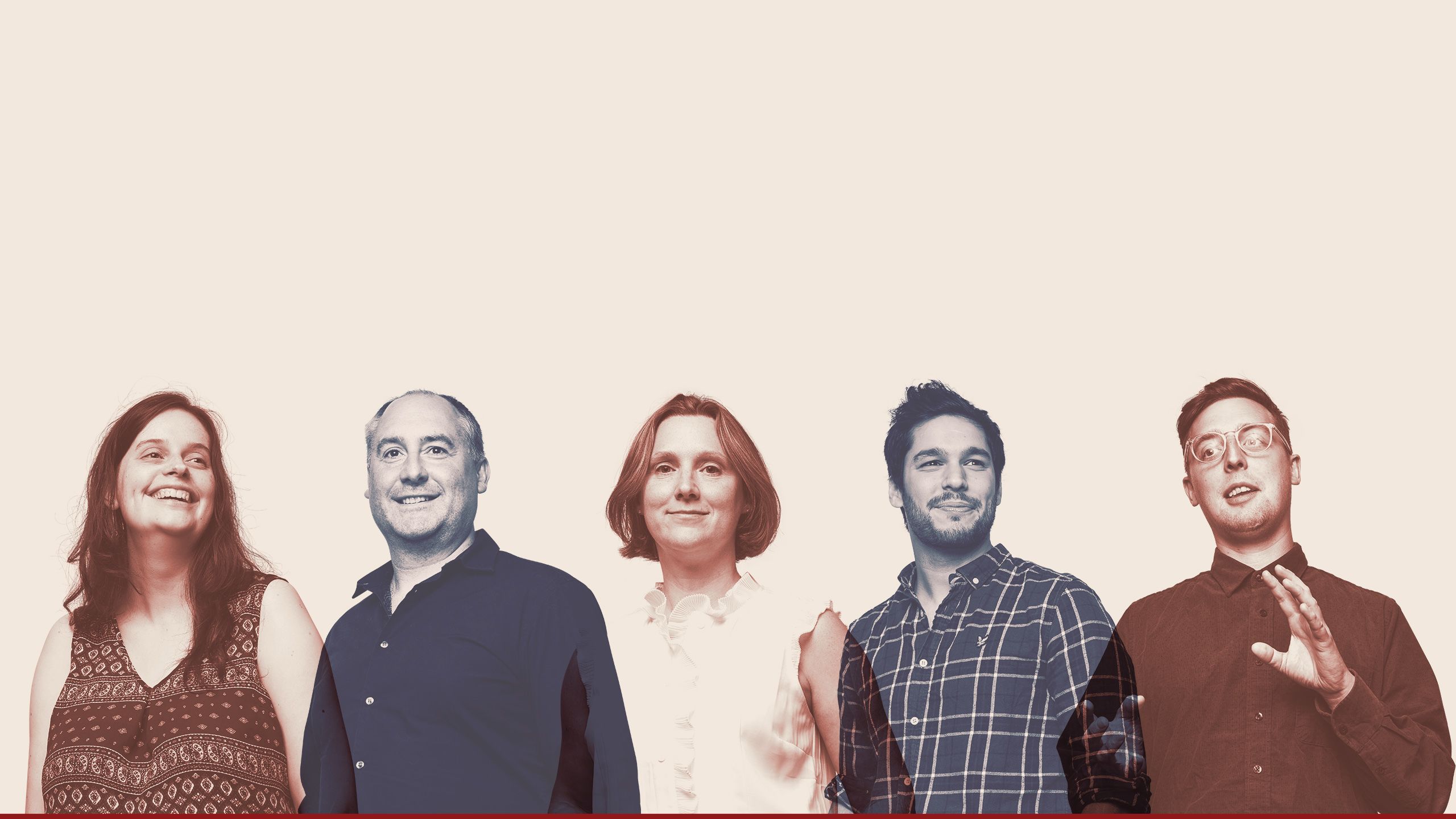
A team from the University of Leeds has developed imaginative ‘Maker Kits’ that aim to bring science to the general public. ‘Maker Kits’ are the latest invention in a series of public engagement projects led by Lorna Dougan, a Professor of Physics at Leeds.
Created in partnership with the Bragg Centre for Materials Research, Physics Outreach Officer Erin McNeill, and the University’s Public Engagement team, the kits translate serious, thought-provoking research in materials design into fun, creative activities that are easy for anyone to try.
Like many parents during the COVID-19-enforced lockdowns, Lorna found herself juggling the home schooling of one child with entertaining a toddler.
“We were stuck inside, trying to fend off boredom and maintain our sanity amid all the uncertainty,” she recalled.
To help, well-meaning friends and relatives soon began sending home-based, Science, Technology, Engineering, and Mathematics (STEM)-related activities that might help pass the days – but there was a problem.
“Invariably, they required a printer or materials, which we didn’t have at home,” Professor Dougan explained.
“Or sometimes, they were so instructive and linear that they proved difficult to use with younger children. When they did something different or tried another approach that seemed more fun, you wouldn’t get to the intended result.”
These experiences reminded Lorna of her motivation to develop different kinds of public engagement materials – ones that would be safe and accessible, but also engaging and unintimidating.
Lorna had already been creating kits designed to get people stuck into science for several years, but now she better appreciated what makes learning materials more popular and effective.
Lorna leads the Royal Academy Engineering Ingenious Award ‘Creatively creating the materials of the future’ and an Engineering and Physical Sciences Research Council Public Engagement Champion Award. These awards bring scientists, engineers, artists and makers together through a range of projects that aim to facilitate wider engagement with the latest research.
One such project is Maker Kits, a series of activities that encourage adults, young people and families to explore innovation in material design.
Some kits show children how to make slime while exploring the properties of matter; others how to create rainbows with the help of diffraction glasses. All aim to foster creativity, innovation and curiosity – and their appeal is easy to understand.
In the Monster Slime Maker Kit you can create your own slime and explore the properties of matter.
In the Monster Slime Maker Kit you can create your own slime and explore the properties of matter.
“We realised there are already a lot of really wonderful resources for schools and, necessarily, they are instructional and tied with the curriculum”, Lorna said.
“We thought Maker Kits could fill a different gap. They are aimed at anyone who is curious or likes creating and making things, including members of the public and families with young children. They are designed to take a discovery-led approach to learning.”
Changing perceptions of science
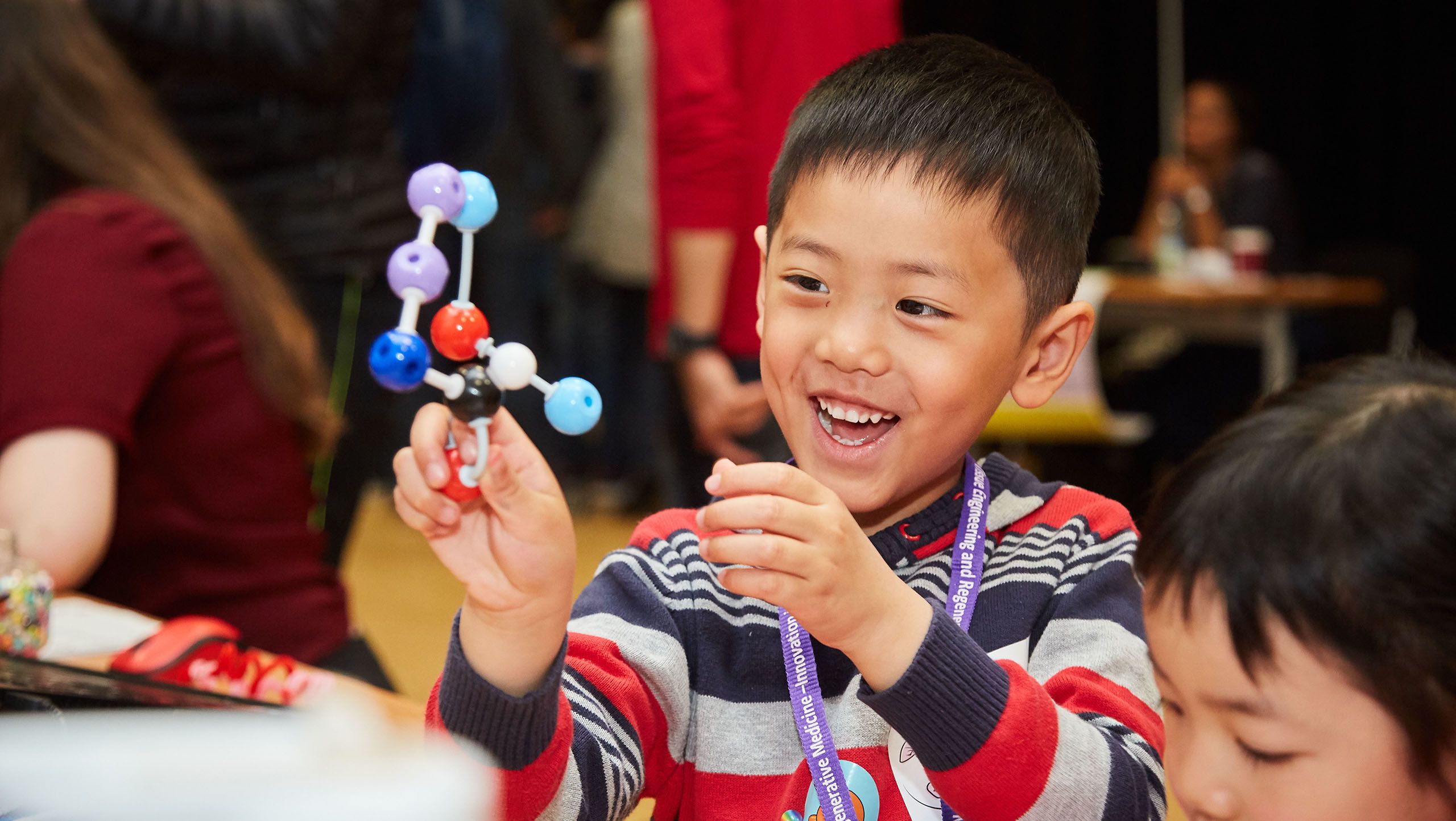
Maker Kits are not the first kind of public engagement materials Lorna has produced.
Five or six years ago, she made a precursor version – dubbed ‘Science Kits’ – and her interest was piqued by some of the reactions from the families who received them.
“They would tell me very sincerely that their kids ‘weren’t really into science’,” Lorna explained.
“Some of these children weren’t yet at school, so it was disheartening to hear that the people with perhaps the biggest influence on their future career choices had already written science off entirely.”
Undeterred, Lorna realised that the problem wasn’t the content of the kits, but the way they were being presented to people.
“In some cases the ‘Science Kit’ labelling might have been putting some families off. We wanted to share the creativity of the research process with as many families as possible – hence ‘Maker Kits’ were born,” she said.
In the Spooky Spider Maker Kit you can create your own spooky spider and explore thermochromic materials.
In the Spooky Spider Maker Kit you can create your own spooky spider and explore thermochromic materials.
Lorna secured a grant from the Engineering and Physical Sciences Research Council, which gave her the funding required to make the kits even more engaging.
“What also helped enormously was the support of the University’s Public Engagement team, Erin McNeill in the School of Physics (who kept the project moving behind the scenes), and Andy Guy (Digital Creative Officer at Leeds),” Lorna recalled.
“Andy brought fantastic professional design skills to the project and we co-created beautifully illustrated postcards for the Maker Kits.”
“I enjoy working with researchers on collaborative projects.” Andy explained. “As a creative, I like finding new ways of sharing research with people outside the University.”
He went on to say: “I love that together we have created a recognisable brand for Lorna’s project – the result is a far-reaching series of activities that can be used in any setting and with any age range. My hope is for the project to continue to develop and expand and think of new ways to explore the research through creativity.”
It was disheartening to hear that the people with influence on their children’s future career choices had already written science off.”
But it was one thing being proud of the materials, the real test would be in how they would go down with the public.
“I went back to the community groups I’d already been working with and presented them with the new versions,” Lorna said.
“Suddenly, the interest level was completely different – people wanted them for family fun days, local community events, you name it.”
The shift in positioning also made the kits more relevant throughout the whole year.
“Before, a lot of the interest came around British Science Week in March,” Lorna explained. “But with Maker Kits, there’s no explicit association to science or the curriculum, even though there’s huge relevance and crossover, so we’ve had enquiries more frequently.”
Some of the Maker Kit team at the University’s Be Curious festival in 2021.
Some of the Maker Kit team at the University’s Be Curious festival in 2021.
Alexa Ruppertsberg, Head of Public Engagement with Research, shares her enthusiasm. “Maker Kits are a great way to put people into situations where they figure something out through play; where they can be creative and indulge in curiosity” she says.
“Curiosity is so important. More than knowledge, knowing how to question will help you in life and that is what we are aiming to achieve with public engagement. Collaborating with and supporting Lorna on the Maker Kits has given us another tool to bring research to people, so we are grateful too!”
Getting to people in numbers
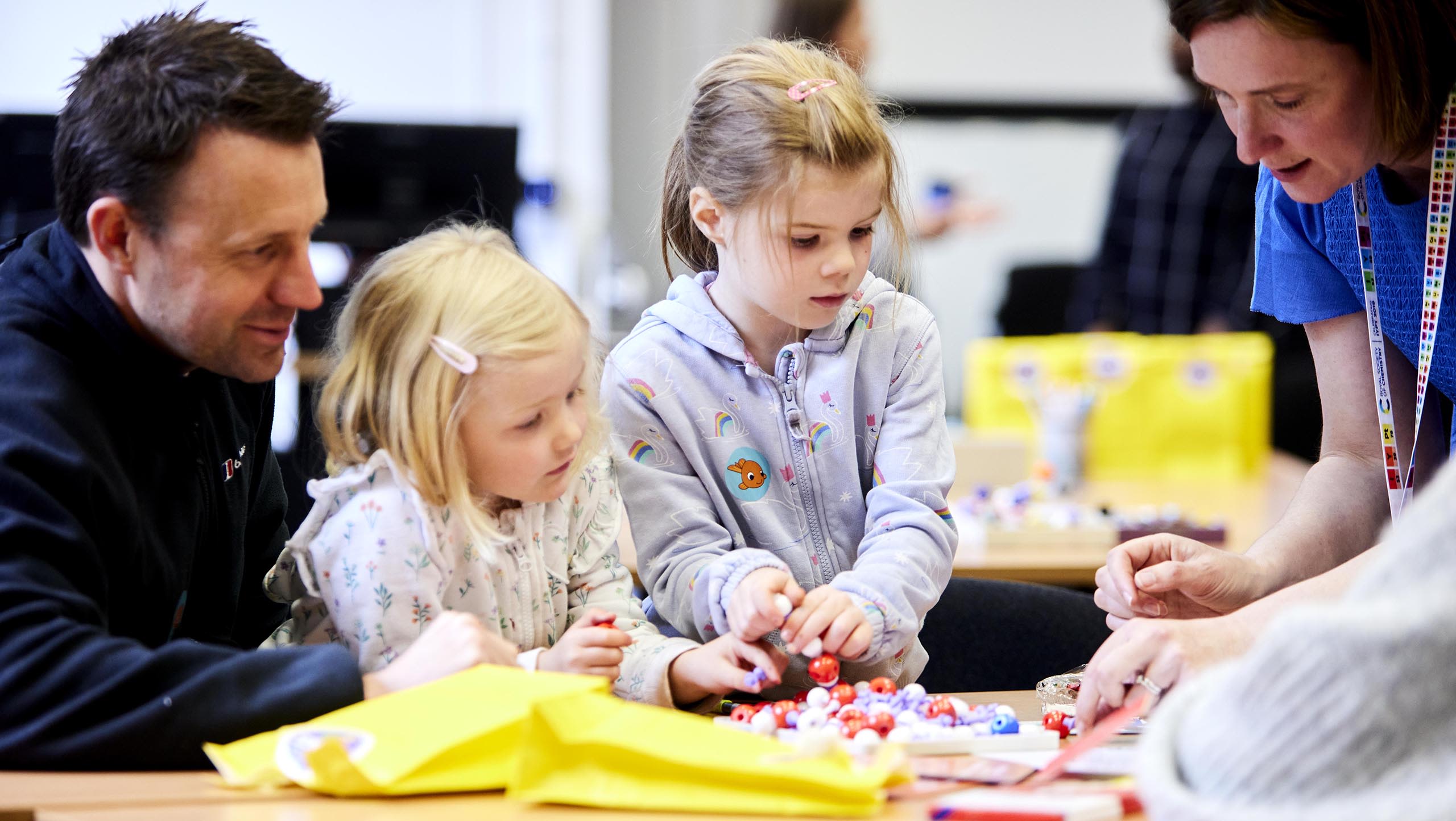
It hasn’t all been plain sailing, though. Just as Maker Kits were proving popular, the COVID-19 lockdowns totally changed how the materials could be distributed overnight.
“There was one group; we had about 100 kits for them,” Lorna remembered. “To comply with the rules at that time, we had to pack it all up into a box, deliver it to the community centre, and ensure the box would remain in isolation for five days.
“Then, and only then, could families who were doing their permitted daily walk pass by the venue to pick up their kit hands-free – it sounds insane, looking back!”
The Maker Kits have since been distributed in all kinds of ways. Youth groups, such as Scouts and Girl Guiding, the National Saturday Club, and libraries and museums in Leeds have all helped Lorna’s team reach young people and families, but they have also strived to be as inclusive and accessible as possible.
“We’ve used local food banks to get the kits to those who might otherwise not have the means to access them,” she said.
“With the current cost of living crisis, the next places we are looking at are warm spaces or warm banks; community venues where people will be gathering and needing to keep their children entertained.”
So far, Maker Kits have mostly been enjoyed by families in Leeds and Bradford. But that’s changing.
“We’ve been working with the team at ISIS Neutron and Muon Source in Oxford, who have been helping us distribute kits to schools down there, which is great,” Loran said.
“And one of our Maker Kits is featured in the high school activity book for British Science Week 2023, giving us a truly nationwide reach for the first time.”
The featured Maker Kit uses hand embroidery to introduce users to ‘self-avoiding walks’ that intentionally never visit the same point more than once.
An example of hand embroidery made with a self-avoiding walk SAWstitch Maker Kit.
An example of hand embroidery made with a self-avoiding walk SAWstitch Maker Kit.
Lorna, Professor Paul Beales and PhD students Christa Brown and Kalila Cook published a paper about the physics behind these sequences of moves, which are used to study how various kinds of networks – such as social networks, computer networks and biological networks – form.
The embroidery produced as a result of the paper was also shared in the Gallery of Soft Matter at the 2022 meeting of the American Physical Society, attended by 12,000 physicists.
From one generation to the next
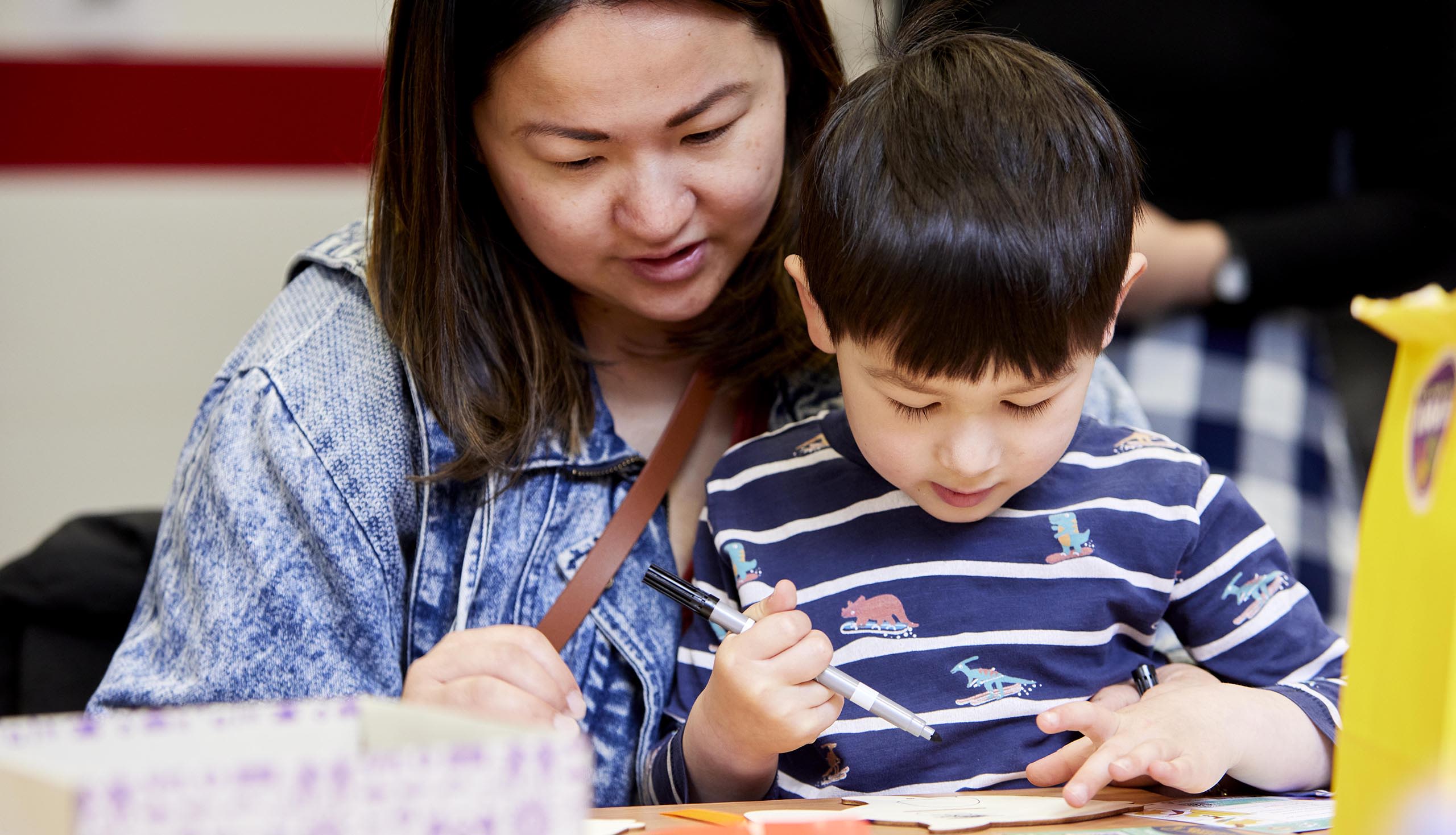
For Lorna, one unexpected happy outcome of the project has been seeing the impact on students and staff at the University, including third-year Physics undergraduates Mirza Baig and Tristan Coe and postdoctoral research fellow Harrison Laurent.
“Obviously when you design these things, you’re thinking about how much they’ll be enjoyed by the public,” she explained.
“But we’ve now got a team of 15 people developing new resources, which is really important if we’re going to produce kits that explore a variety of topics.
“What’s particularly exciting is how some of our undergraduates are not only creating Maker Kits based on their own personal interests outside of their studies, but also thinking about which communities they’d like to connect with and who they want to reach.
“Maker Kits is one of the research projects they can opt for, and many of them tell me they chose to get involved because they feel socially responsible; they want to share their love of science and research.
“That, to me, is what public engagement is all about.”
A child holding a fish made with an Extreme Water Maker Kit.
A child holding a fish made with an Extreme Water Maker Kit.
Tristan, who developed a Maker Kit for his final project, said: “I’m proud to be influencing young minds and pointing future scientists towards topics that I’m passionate about myself.”
Mirza explained why he was keen to be involved in the project:
“It felt like a unique, magnificent opportunity to share my passion with the wider community. Hopefully it will inspire the younger generation to take up science, and physics in particular. It’s an almost unending subject that’s not only challenging, but fun and enjoyable, too!”
We’ve now got a team of 15 people working on developing new resources, which is really important if we’re going to produce kits that explore a variety of topics.”
About the researchers
About Lorna
Professor Lorna Dougan is a Professor of Physics who specialises in soft matter and biological physics. Lorna is especially passionate about science communication and collaborative arts-science opportunities.
She was awarded the Elspeth Garman Prize for Public Engagement by the British Biophysical Society in 2022.
About Paul
Paul Beales is a Professor of Soft Matter and Biophysics. His research is highly interdisciplinary, covering physics, chemistry and biology. He teaches topics like soft matter, thermodynamics, drug delivery and biological membranes.
About Christa
Christa Brown is a PhD candidate with a demonstrated history of working in higher education. She is skilled in data analysis, research, problem solving, teamwork, and project planning.
Christa is an experienced researcher with a BSc and MPhys in Physics from the University of Leeds.
About Harrison
Harrison Laurent completed his MPhys and BSc in Physics with Nanotechnology at the University of Leeds, with a particular focus on biophysics and soft matter.
He led the research associated with an Extreme Water Maker Kit and co-created an accompanying animation video to explain the key results.
About Andy
Andy Guy is a Digital Creative Officer at University of Leeds and is responsible for developing, organising and managing the creation, editing and curation of content across its dedicated web and social media platforms.
His work includes engaging existing audiences and growing the online following, as well as the University’s public-facing brand of digital content.
